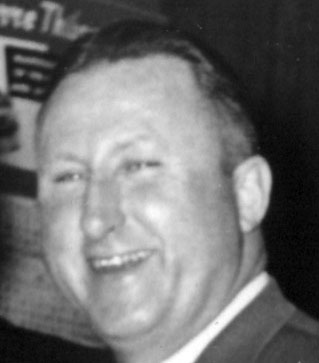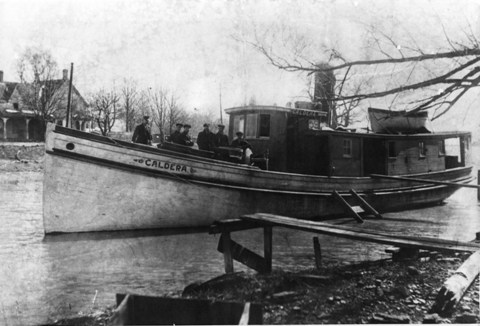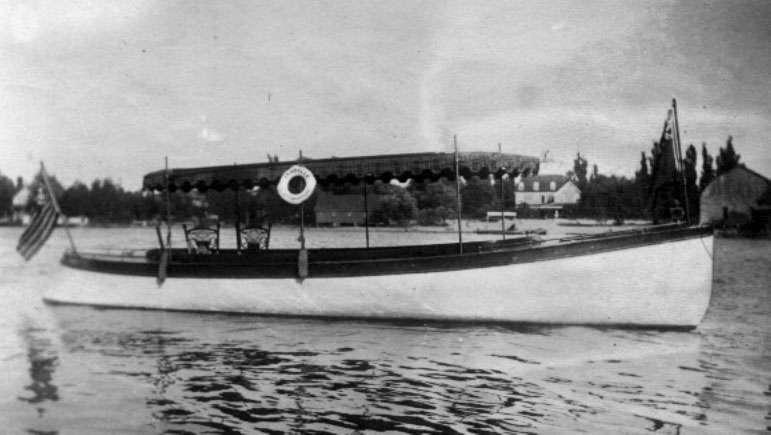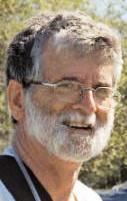Today, I lost an old and
valuable friend. When I was a child growing up at Port Maitland, I
could see his house across the river from mine. Always bigger than
life to me, I was never comfortable talking to him. He scared the
stuffing out of me. As a boy, I could tell which fish tug was
approaching the harbor simply by listening to the sound of its
engine. Not his boat! I could be sitting on the rocks fishing and
look up and there he would be tying up to the dock and I hadn't
heard a sound. He kept the cleanest, quietest, fish-tug in Port,
bar none!
At first we would meet at family reunions,
though he was not related. He had been so much a part of my father
and his siblings' family for so many years that it was natural to
ask him to drop in so the far-flung family members could renew
their acquaintance with him.
As time went on and I
became more interested in the history of Port Maitland I thought
who better to turn to for information than him? We soon found we
had much in common. We spent many hours looking over our postcard
and picture collections of Port Maitland. Always amazed with his
memory for dates and events, I would find something in my research
of an old Dunnville paper and open a conversation with something
like "Caldera burns or boat called Isabel, or
maybe I would simply give a date." He would more times than
not tell me the rest of the story. His memory for dates and detail
was second to none. I don't know how he stood my constant
badgering. No sooner did he answer one question and I had another.
If I asked questions of other old-timers around Port Maitland,
they would always defer to him. I am going to miss him, not only
as a friend but I know that many times in the months ahead, I will
be working on a story and without giving it a thought, I will say,
"I must give him a call" and find out what really
happened. Then, reality will painfully set in and no phone call
will take place. Fortunately, I was lucky enough to tape a number
of hours of our conversations. Maybe, the sound of his voice on
the tapes will lessen the loss.
He had little patience
for people who acted -or he believed acted as if they knew all
there was to know. Don't get me wrong, he loved to listen to
someone who could tell him something new or to rehash old-times
with anyone who would listen. He knew what he knew and he felt
that if he had nothing valuable to say on the subject it was best
not to say anything at all. I remember one time in my naivety, I
challenged him about there being a crow's-nest on the mast of the
Maitland # One. I soon found out that when he was telling me
something of historical value he meant what he said and said what
he meant. Sometimes I would say to him, "Is this one of those
times you are pulling my leg or is this a crow's-nest
story?"
During the course of the past ten years he
and I have travelled to a number of places together. Recently, due
to age, he lost use of his car and found this very difficult. We
travelled well together. I was always aware he would maybe rather
go here than there. Somehow we always managed to find a
comfortable compromise and ended up where both of us wanted to be.
We travelled to Bowling Green in Ohio, a couple years ago to visit
the Historical Collections of the Great Lakes Institute at Bowling
Green State University. We stayed in a motel across the street
from the university and went for breakfast in their
restaurant.
It was a little place with approximately
five tables. It didn't take him long until he had a conversation
going with people at the next table. In the next fifteen or twenty
minutes he had discovered that he knew one of the women and her
late husband. He told her what her house looked like, where she
lived and the name of her husband's fishing tugs. For fifteen
minutes he pulled information from her about her now grown
children and grandchildren. He found out who was fishing the
family tugs and on which tugs certain relatives fished. He found
out, or should I say confirmed with her the size of the tugs and
the engines that powered them, as well as many other facts. In
other words he knew all about her! At least three to four times
during the conversation she asked him, "What is your name!"
Not once did he give a clue! We left that restaurant wiser then we
arrived and gave not one bit of information away. "Say, what
is your name," became my new opening wisecrack to him.
Earl
Milford Siddall, has gone to meet with his maker. It is not going
to be easy for poor old St. Peter and the Big Man to assess Earl.
Chances are the "Harbour Master" will find out more
about St. Peter and God then they ever intended to tell him and
when the interview is over they will say to each other, “What is
that man’s name?"
|

Earl Milford Siddal circa 1963

Fish Tug Caldera in Feeder Canal circa 1925

Pleasure Boat ISABEL owned by the Tooker Family
Port Maitland
|

